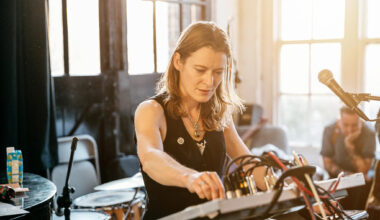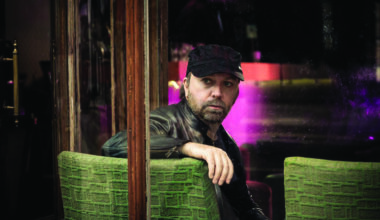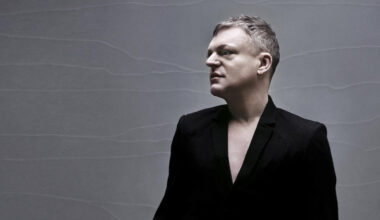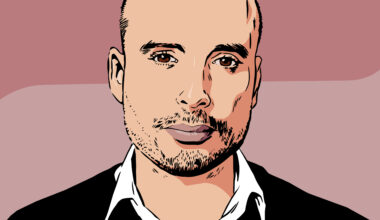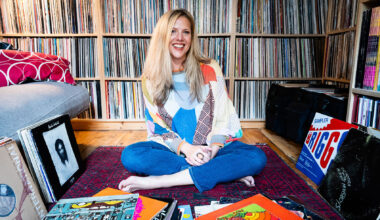Bristol producer/DJ Jim Coles – aka Om Unit – has been exploring the outer reaches of dub, hip hop and downtempo for over 20 years. With the reissue of his 2013 debut album, ‘Threads’, he delves into the elements that shape him and his music
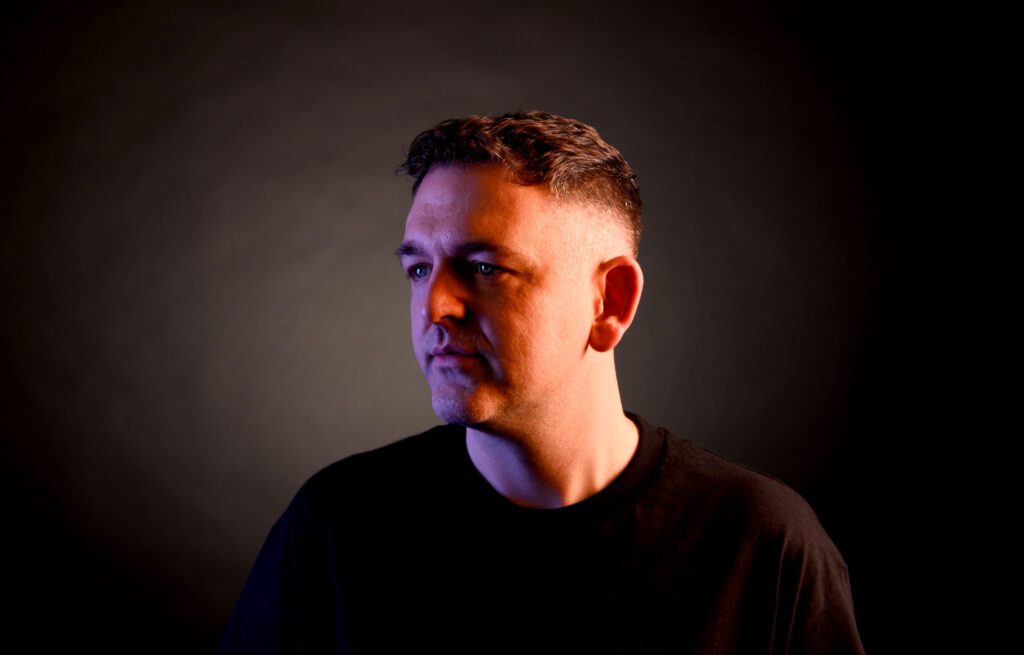
SCIENCE FICTION
“As a literary form, science fiction is incredibly useful. It goes further than mere fiction in creating other-world scenarios, and in doing so perhaps better reflects the human condition. I believe that science fiction is the modern equivalent of mythology, and it exists out of pure necessity in today’s world as an exploration of how our technological growth might exist in parallel to being human.
“Jean-Michel Basquiat said, ‘Art is how we decorate space. Music is how we decorate time’. So for me, the idea of making ‘sonic fiction’ is generating time-based narratives designed to invoke a sense of other worlds. I believe exploring science fiction can help to influence and inspire the creative mind. Feeding the imagination and sparking curiosity around sonic possibilities.”
SOLITUDE
“The Swiss psychologist, Marie-Louise Von Franz, once quoted the Hellenic occult author, Hermes Trismegistus, who said, ‘I am the friend of whoever is lonely’. I feel that Von Franz framed this statement as a message of validation to those who crave and enjoy solitude, when she explained that to be alone for a length of time is very helpful in making a connection with one’s unconscious mind.
“To have a sense of our unconscious mind, and to get familiar with it, is a very powerful tool. Since I was a child, I’ve enjoyed a sense of freedom in being alone with my thoughts and creative processes. Too much of this is painful, of course, but in general I do find it’s the main source of my ability to make music in the way that I do, and do it best.”
SPIRITUALITY
“If we look out into the world, and human history, it seems that the search for ‘spirituality’, and deriving some meaning from our time here, is vital to the human experience. So many paths have been taken, and so much has been said and written, it’s important to explore every possibility when it comes to spiritual teachings. I’ve often been drawn back to various philosophies in order to enhance my life, and have learned more about myself, which has influenced how I choose to interact with my creative side.
“I believe that music is the language of the spirit. Using tools – electronic and acoustic – combined with song, whether story-based or devotional, we have constructed this language to communicate emotion that can cut through the subjective experience and transmit a shared state. I like Alan Moore’s take on art and magick, in that he feels they are interchangeable, that the process of ‘making’ art is to manufacture experiences that alter consciousness. Understanding spirituality in a general sense has been a very good tool for my own creativity.”
HONESTY
“The American author and ‘business thinker’ Seth Godin said, ‘If you need to conceal your true nature to get in the door, understand that you’ll probably have to conceal your true nature to keep that job’. So much of what we do as artists nowadays is subject to temptation in terms of how technology has harnessed human beings’ need for dopamine. I believe that we now live in a world where most of the planet is highly addicted to short-term and short-lived dopamine reward.
“One of the major traps that we face today is the temptation to change how we create in order to get the biggest dopamine hit, in the fastest way possible. I do sense a growth in disingenuous artistic activity, which is driven by this addiction to instant gratification. I’ve found that being as honest as possible when making music, and trying not to be too influenced by the perceived pressure to ‘keep up’ that social media presents us, has helped me to feel more deeply connected, and ultimately more pleased, with the work I’ve done in recent years.”
TEACHING
“One of the best decisions I have made is to teach classes in music production. People are often surprised to hear that I teach. I think many of them assume that I’m living ‘the dream’ of being a full-time artist. Being a full-time artist is overrated, and having a function in the world that balances the sometimes solitary, subjective role with something more societally cohesive and objective can be very enriching. To put it bluntly, standing in front of a class of people who have no idea who you are and don’t actually care that much is enormously levelling.
“Occasionally, I have students who are aware of what I do, but mostly it’s the siloed identity of teacher, rather than artist, that I find keeps me grounded egotistically and has meant that I’ve really had to learn how to communicate at a high level. This has led to further self-awareness of my own creativity, which has been immensely valuable. Another benefit is staying in touch with the newest tools for making music – learning both from my students and the research I do to update my course content each year.”
DUB
“To me, dub music is the art of using an audio mixer as an instrument. Born out of reggae, it’s now incorporated into many musical forms. This method of manipulating the nature of sound over time has been pivotal in terms of breaking new ground with my own practice. Until I dived into this style of music-making, I’d become too fixed around sitting, clicking a mouse and staring at a screen – and my music had begun to sound like it, too!
“The gift that dub reggae’s pioneers gave to the world is priceless. For me, engaging with dub creates much more human, organic and alive-sounding music. A music that people want to go back to. I’m drawn to it because, while it feels playful, there’s also a technological edge to dub. Something that asks the question, ‘How can you do this differently?’.”
The remastered 10-year anniversary edition of ‘Threads’ is out on Civil Music

